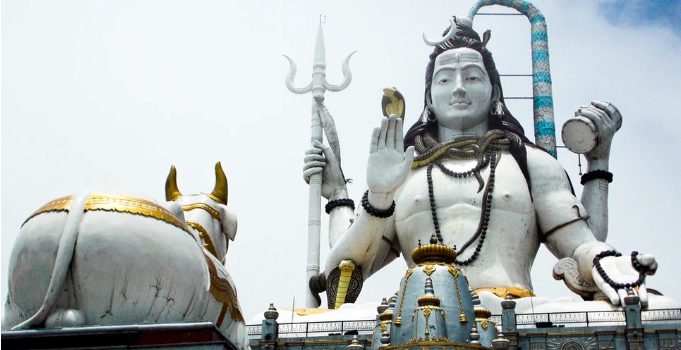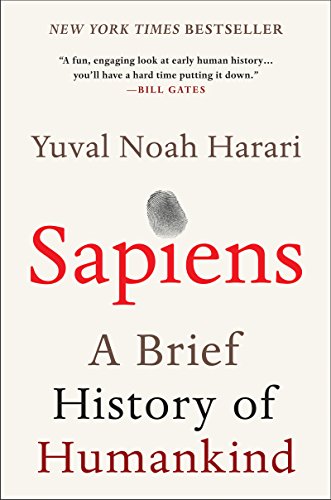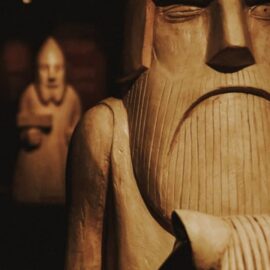

This article is an excerpt from the Shortform summary of "Sapiens: A Brief History of Humankind" by Yuval Noah Harari. Shortform has the world's best summaries of books you should be reading.
Like this article? Sign up for a free trial here .
What is the belief in many gods? What were the benefits of polytheism for our ancestors?
Polytheism is the belief in many gods. After the Agricultural Revolution, our ancestors worshipped gods in return for dominance over plants and animals.
We’ll cover the rise of polytheism and how polytheism is inherently tolerant of diversities in race, culture, and lifestyle.
Polytheism‘s Origin
The origin of polytheism, belief in many gods, starts with the Agricultural Revolution.
The Agricultural Revolution led to a religious revolution. In previous, animistic belief systems, man was no better than other animals, plants, and geographical features. For instance, man didn’t consider himself superior to a sheep just because he hunted sheep, just as he wouldn’t consider himself inferior to tigers just because they hunted him.
But when hunter-gatherers became farmers, suddenly man had dominion. Rather than equals in the spiritual realm, sheep and grains became objects farmers owned and protected jealously. Man and his concerns became the center of religious belief. This was polytheism’s origin, and the start of belief in many gods.
While man suddenly had more control over the animal and plant kingdoms than he’d ever had before, his control wasn’t complete. He still had to contend with drought, epidemics, and sickly lambs. He could no longer pray and make offerings to the ewe to have healthy lambs, as he could have in an animate religion, because the ewe was now his property and theoretically under his control. You don’t pray to something less powerful than you are. Man had to find someone or something else to worship, someone to control the things he couldn’t.
Gods originated as a way to solve this problem. The job of gods was to mediate between humans and the rest of the natural world, over which man now wanted control. Humans worshipped gods in return for dominance over plants and animals.
As empires and trade networks grew, the worlds of individuals got larger. Rather than appealing to a few local gods, people now needed a pantheon that could address all the new needs of an expanded world. This was the origination of polytheism, the belief in many gods. Gods usually had distinct personalities and functions. For example, there was a goddess to address infertility, a god to make it rain, and a god to bring luck in war.
Although polytheism came to dominate the religious landscape, animism didn’t disappear. As we’ll see, legacies of animistic belief remain today. What did disappear was the belief that humans were just one among many beings with souls. Polytheism, the belief in many gods, brought man center stage and changed the way we viewed ourselves and our world.
The Inherent Tolerance of Polytheism
Although it may have downgraded the status of plants and fellow animals, polytheism was remarkably tolerant of other religions, a feature we don’t see as often with monotheistic religions, which promote belief in a single god. The belief in many gods allowed polytheism to function differently than monotheistic religions.
Polytheism’s plurality of gods made it tolerant by nature. Since they already believed in the existence of many gods, it wasn’t difficult for people to believe that another god existed and was effective at meeting the needs of another group of people.
Rulers of polytheistic empires didn’t try to convert their conquered subjects. For example, the Egyptians, Romans, and Aztecs asked that their new subjects respect their gods (since these gods were the foundation of the empire, holding up the imaginary social order), but they allowed them to continue worshipping their local gods as well. In some cases, the rulers added gods of conquered peoples to their own pantheon. For example, the Romans adopted the goddess Cybele from Anatolia, and the goddess Isis from Egypt. Their belief in many gods made it easy to accept and incorporate other gods and goddesses.
———End of Preview———

Like what you just read? Read the rest of the world's best summary of "Sapiens" at Shortform . Learn the book's critical concepts in 20 minutes or less .
Here's what you'll find in our full Sapiens summary :
- How Sapiens outlived and outlasted the 8+ other human-like species on Earth
- The 3 critical revolutions in human existence that led to our domination of the planet
- How much of what powers our world today is really just a shared mass delusion
- What the future of humanity might look like






